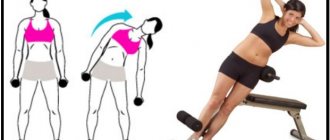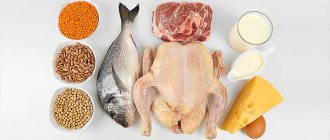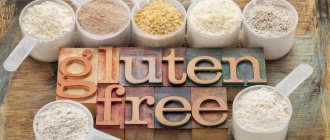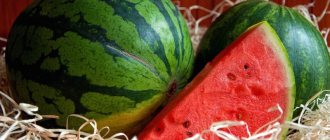Edema provokes not only an increase in weight on the scale, but also its subsequent “stability”. The presence of excess water in the body is the reason for slow weight loss, since fat cells cannot burn more intensely if there is water in them. As a result, the question arises about removing water from the body, which can happen gently and using preventive methods or quickly with the use of medications. Since medications lead to the development of side effects, the method of removing excess fluid from the body must be chosen after consultation with a doctor. It is the specialist who must determine the cause of poor water removal - this is often associated with the development of complex and dangerous diseases.
How to remove excess fluid from the body quickly at home?
Water and life are impossible without the other. Normal functioning of the body is impossible when dehydrated. But when there is excess fluid, it causes many problems: body swelling, weight gain, pregnancy complications and much more. All these problems can be solved only by getting rid of the accumulation of excess fluid.
The fact is that excess fluid does not accumulate in the body just like that. But what are the reasons for excess water? How accessible are the ways to solve the problem of excess fluid accumulation at home? How can you remove unnecessary fluid using folk remedies? Let's consider these questions in more detail.
Causes of excess fluid
Why does water stay in the body? How to remove excess fluid from the body safely and quickly? Most often, a large amount of unnecessary water in the body is a consequence of improperly organized nutrition, drinking regimen and lifestyle in general, that is, an incorrect attitude towards one’s health. The problem may be caused by:
Insufficient amount of water in the diet. Are you surprised? Excess water in the body actually appears due to its lack. It would seem like a paradox. However, when the body is in great need of fluid, out of fear of being left completely without water, it begins to accumulate it, that is, remove less. Don't forget that to quench our thirst normally, we don't need juices or carbonated drinks, but clean water.
Every day, fill a bottle of water, place it next to you and try to drink it during the day. This method of removing fluid is effective and absolutely safe. After a week or two, the brain will stop storing liquid in reserve in every cell of your body.
Tip: install a special application on your phone that will calculate how much water your body needs per day and will notify you every time it’s time to replenish your supply.
Excessive consumption of diuretic drinks: coffee, tea, alcohol. In such cases, the body becomes dehydrated and again tries to replenish water reserves. Don't let your body become dehydrated, drink plenty of clean water.
Low physical activity. For normal water removal it is necessary that muscle tissue contract regularly. A sedentary lifestyle slows down metabolism and leads to fluid accumulation between cells. Add some physical activity to your life, your body will thank you for it.
Excess salt. Table salt contains sodium. The body needs it, but in small quantities: only about 1 g per day. Sodium binds water molecules and holds it in tissues. The fluid settles in the fat cells.
For one molecule of Na there are 20 molecules of H₂O. Against the background of fluid stagnation, the kidneys work to the limit, pressure rises, there is more circulating blood, and it becomes more and more difficult for the heart to cope with the load. In addition, salt removes potassium, which is essential for health, from the body.
Drinking heavily in the evening. This is why we wake up in the morning with severe swelling - because the kidneys work less intensely at night than during the day. The last intake of liquid should be no later than 2-3 hours before bedtime.
In addition, the cause of excess water is various diseases, hormonal imbalances, and sleep disorders. In any case, a large amount of excess water is an indicator that there is a malfunction in the body’s functioning.
How to remove water from the body for weight loss?
The kilograms that are lost at the first stage of losing weight are excess fluid that has accumulated in the body of the person losing weight. This is why in the first weeks of the diet, weight comes off so quickly, and 2-3 kilograms are easily lost even without following a strict regime.
The simplest and most effective ways to get rid of excess fluid are:
- increasing the consumed daily volume of clean water;
- salt-free diets to remove excess fluid from the body and accelerate weight loss at home;
- avoidance of products containing significant amounts of caffeine;
- consumption of foods rich in coumarin, a substance that regulates the amount of fluid in tissues (cinnamon, parsley, celery);
- long walks;
- frequent changes of positions and short breaks during prolonged sedentary work.
If these methods do not help, and the amount of excess fluid in the body cannot be reduced, you should consult a doctor.
The cause of swelling can be serious disorders of the liver, kidneys, heart and thyroid gland . In addition, excess water may be a side effect of the medication you are taking.
Advice for late pregnant women
How to remove water from the body during pregnancy and later stages? Edema during pregnancy, especially in its later stages, is a special problem for women. After all, the stress on the body increases, and the kidneys have to remove much more waste fluid than before. At the same time, medications often provide only a placebo effect. Therefore, to remove excess fluid during pregnancy, you can use a set of simple measures.
The most effective and safe ways to combat edema during pregnancy:
- daily walks;
- light massage and self-massage;
- proper nutrition;
- special gymnastic exercises;
- cold and hot shower;
- baths with sea salt and essential oils;
- wearing compression garments.
Another effective way to reduce physical stress on the excretory organs is the knee-elbow position . It is advisable to get into it regularly, increasing the time every day.
Remember, water, as a vehicle for the body’s waste products, is needed in large quantities . Contrary to the previously held opinion of doctors, it is impossible to limit its intake under any circumstances .
Folk remedies
How to expel water from the body using folk remedies? Grandmother's methods will help in solving this problem. herbal infusions instead of regular tea throughout the day .
- Lovage. The infusion is consumed for about 20 days. It is useful even with significant accumulations of excess fluid. Preparation: pour a teaspoon of dry herb with a glass of boiling water and leave for half an hour. You need to drink the entire infusion after breakfast.
- Peppermint. Pour 8 tablespoons of herbs into a thermos and pour 6 cups of boiling water. Close for half an hour, then strain. Use the product throughout the day. The course of treatment is at least 10 days.
- Rose hip. 6 glasses of hot water and 2 handfuls of berries are poured into a saucepan or kettle, then put on fire and brought to a boil. Cover with a tight lid, wrap in a towel and leave for about an hour. Drink this tea for at least 20 days.
In addition, the following herbs can be classified as mild diuretics:
- lingonberries;
- bearberry;
- arnica flowers;
- Dill seeds;
- birch leaves.
They are often used in folk medicine in the manufacture of anti-edema remedies. Before using teas using them to remove water, you should consult a herbalist.
How to remove fluid from the body with ascites, edema and heart failure?
The situation is much more complicated in patients suffering from ascites, that is, abdominal dropsy. With this disease, excess fluid accumulates in large volumes in the abdominal cavity. It can be extremely difficult to remove it from the body.
How to deal with swelling
You can get rid of swelling caused by food by reviewing your entire diet. Unfortunately, you won’t be able to completely give up some foods. Therefore, it is better to adhere to preventive rules that will help reduce the risk of fluid retention in the body.
Rules:
- It is recommended to consume at least one and a half liters of clean drinking water per day. This will provide the body with the required amount of fluid and eliminate the need for its accumulation.
- Exercising and walking in the fresh air speeds up your metabolism. The functioning of the excretory systems improves, the fluid is not retained, but is eliminated faster.
- To quickly get rid of excess water, baths and baths with sea salt and soda will help.
- It is recommended to limit salt intake and use less spices in cooking.
- It is better to include more foods high in fiber and potassium in your diet. Such substances reduce the risk of fluid retention in the body.
- Fresh juices of carrots, cabbage, and beets have diuretic properties.
- Fasting days help with fluid retention well. At such times, it is better to eat apples, kefir, milk, and tea.
It is prohibited to use diuretic drugs for treatment on your own. If medications are used incorrectly, the development of negative consequences cannot be ruled out. Therefore, any remedy must be agreed upon with a medical professional.
Causes of water accumulation in the body
Excess water often becomes a consequence of diseases that disrupt the functioning of the kidneys, endocrine system, and water-lipid metabolism. Meanwhile, a healthy body often suffers from accumulated water for other reasons:
- Drink plenty of fluids before bed. At night, the kidneys simply cannot cope with the load, which leads to swelling and stagnation of water.
- Water deficiency (insufficient drinking) provokes the body to create its own water reserves.
- Abuse of diuretic drinks is similar to the effect of moisture deficiency in the body.
- Low physical activity leads to vascular pathologies, lymph stagnation, and accumulation of water between cells.
- Abuse of salt, which binds water molecules and prevents it from leaving the body naturally.
Inflammation and fluid retention
Inflammation is the body’s protective reaction to damage, infection, allergen or a number of other factors. During the process of inflammation, the spaces between the cells of the vessel walls widen (the vessels “leak”), allowing protein to enter the tissues from the capillaries. If the protein is not broken down and removed from the tissue fluid, the inflammatory process is prolonged. Chronic inflammation occurs when the walls of blood vessels constantly leak a lot of fluid containing protein molecules. Deficiency of B vitamins, vitamin C and flavonoids aggravate the situation.
With chronic inflammation, tissue fibrosis forms over time, causing lymph drainage to become even more impaired. A vicious circle is formed - the more inflammation, the worse the lymphatic system works. Immune cells (leukocytes), which gather at the site of inflammation, produce enzymes that should break down the protein that has entered the tissue fluid. However, these same enzymes can also destroy healthy body tissue. if the inflammation subsides, then the tissues are restored, but if the inflammation is prolonged, tissue degradation occurs.
An example of systemic damage would be gluten-free arthritis. With leaky gut, a person regularly consumes gluten (wheat) protein, which in its structure resembles the connective tissue of the knee joints. As a result, an overexcited immune system reacting to gluten can “confuse” the wheat protein with joint tissue and begin to damage it. As a result, a chronic focus of inflammation is formed. As long as a person consumes gluten and has a “leaky gut,” swelling and inflammation will persist.
Ways to remove excess fluid when losing weight
Diuretics are the simplest and fastest means of removing excess water. However, medications are intended to treat ailments, and they will not benefit a healthy person, so diuretics should be taken only as prescribed by a doctor. Those whose body suffers from excess water not due to illness should resort to rational and safe methods of removing fluid: fasting days and dietary nutrition, physical activity and bath procedures.
Special diet
How to remove excess water from the body for weight loss by changing your diet? To do this, it is necessary to limit the amount of salt as much as possible, and it is better to do without it altogether. You should exclude fast food, semi-finished products, canned food from the menu, and adhere to the following nutritional rules:
- drink more plain water;
- increase the share of foods rich in coumarin (celery, parsley, cinnamon, etc.);
- refuse (or reduce as much as possible) drinks with caffeine and tannin;
- eat foods rich in fiber.
A special diet has been developed to quickly and intensively rid the body of excess water. You need to follow it for exactly seven days, during each of them do a cleansing enema, drink 500 ml of kefir and eat a certain set of foods:
- 5 boiled potatoes.
- 100 grams of white chicken meat (boiled, without salt), vegetable salad with vegetable oil.
- 100 grams of lean veal (beef) plus vegetable salad.
- 100-150 g of fish (boiled, steamed, poached) and three to four bananas (optional).
- Any fresh vegetables in any combination and quantity.
- Kefir (no more than two liters).
- Still mineral water.
Fasting days
It is possible to remove excess fluid from the body through short-term food restriction. Fasting days can be different: based on drinking or on mono nutrition. For effective weight loss, it is important to drink at least a liter of clean water on this day. Choose any method of unloading that suits you, arrange it at least once a week, try alternating the wellness menu:
- Milkweed . It is considered one of the most effective means of removing accumulated water from the body. Brew green tea and drink it with milk without other additives. You should not consume anything other than milk tea (not counting water!) on a fasting day.
- Kefir day. One and a half liters of low-fat kefir per day will help to significantly lose weight, remove swelling, and other manifestations of excess water in the body.
- Unloading on pumpkin juice will help get rid of accumulated water in the body and nourish you with vitamins. The only condition is that the juice must be natural, preferably freshly squeezed.
- Oatmeal removes excess water well, cleanses the body of toxins, and improves digestion. For a fasting day, you need to cook yourself porridge from rolled oats or whole oat grains. The dish must be cooked in water, do not add salt to it. It is allowed to sweeten the porridge with raisins and a small amount of honey. You can eat it as much as you want.
- Another option for unloading on oatmeal is “beauty salad” . Pour three tablespoons of rolled oats into a half-liter jar, add raisins, a quarter of a chopped apple and some crushed nuts or seeds. Fill everything to the top with kefir and leave overnight. This is your food for the entire fasting day.
About methods of removing excess
There are several ways to remove water from the body in order to lose weight and not return to the original parameters immediately after completing the diet. Taking diuretic pills is not only simple and effective, but also dangerous.
Video
Excess water will be replenished literally the next day with weight gain - the body stores water in case of subsequent dehydration. The following methods are distinguished to eliminate excess from the body in a natural way.
Special diet
In order not to provoke the accumulation of excess water in the body, it is necessary to avoid salty foods, spicy seasonings and canned products.
If you want to get rid of water faster, it is recommended to use a special diet:
- Monday – eat 5 boiled potatoes without salt;
- Tuesday – 100 g of boiled chicken breast and a lot of green vegetable salad with vegetable oil;
- Wednesday – 100 g of boiled veal with vegetable salad;
- Thursday – 150 g of boiled fish and 3-4 bananas;
- Friday – any fruit;
- Saturday – no more than 2 liters of low-fat kefir;
- Sunday – still water.
The presented diet will allow you not only to get rid of water, but also to lose up to 5 extra pounds in a week. It is only important in the future not to return to the previous diet - be sure to switch to proper nutrition in compliance with all the rules.
Video
Fasting days
If there is no goal of losing weight, it is enough to turn to fasting days. Such mono-diets for one day help remove water from the body and cleanse the intestines of waste and toxins.
Among the most effective fasting days are:
- milk tea – involves drinking green tea half diluted with milk during the day;
- kefir – drink no more than 1.5 liters of kefir per day and nothing more;
- pumpkin juice – you need to prepare natural pumpkin juice and drink it throughout the day, but not more than 2 liters;
- Oatmeal is an excellent option for those who want to simply eliminate water if unloading on liquids is not suitable (oatmeal is cooked in water without salt or seasonings).
Despite the fact that fasting days are carried out in order to get rid of excess water, you need to drink at least 1.5 liters of clean water per day. A large amount of water will help cleanse the body and prevent fluid retention.
Workout
Training makes it possible to increase sweating and lymphatic drainage, which, if not functioning correctly, clogs blood vessels and provokes fluid accumulation in the body. To do this, it is recommended to use cardio training - running, cycling, as well as jumping rope or fitness.
Sauna or hot bath
Exposure of the human body to dry or wet steam helps remove excess water from the human body. Athletes expel fluid from the body in a similar way before important competitions if they need less weight to determine their weight category.
Important: The presented method cannot be used if a person suffers from changes in blood pressure, diabetes, or tuberculosis. The method of eliminating fluid during pregnancy and lactation is prohibited.
What drugs remove water from the body?
Medicines that remove water from the body are called diuretics. They are classified depending on the specific area of the kidneys on which the drug acts:
- thiazide;
- loop;
- potassium sparing;
- aldosterone antagonists.
The first group of drugs is considered the most effective for removing excess salt and water from the body, but taking the drugs sharply and greatly reduces blood pressure. Popular tablets of this group:
- "Indapamide" or "Arifon";
- "Klopamide";
- "Benzthiazide";
- "Dichlorothiazide" or "Hypothiazide".
Loop diuretics regulate the filtration process in the kidneys and enhance the removal of fluid and salt from the body. The disadvantage of this group of drugs is serious side effects, so they are prescribed only in critical cases. Loop diuretics include:
The use of potassium-sparing diuretics is combined with other strong diuretics. They are prescribed to prevent the leaching of potassium and calcium and to enhance the diuretic effect. The group of potassium-sparing drugs includes:
Water retention in the body is caused by the action of the hormone aldosterone. If it is neutralized, salt and water begin to be intensively excreted in the urine, but the potassium content in the body does not decrease. A well-known aldosterone antagonist is “Veroshpiron” (tablets and capsules). The medicine has the effect of removing excess water from the body on the second to fifth day of treatment.
Foods that remove liquid
A properly formulated diet will help reduce excess water in the body even without the use of medications. To achieve this effect, you need to include seasonal vegetables and fruits, herbs, and some spices in your daily menu. For example, cinnamon and ginger, celery and parsley successfully remove water from the body. Products such as:
Fluid removal products
The following products actively remove fluid from the body.
- Fruits (watermelon, strawberries, blueberries, viburnum). In case of kidney stone disease, these fruits should be used as food carefully so as not to cause an exacerbation.
- Tomatoes, asparagus, cabbage, leaf lettuce. They not only help remove water, but also help eliminate toxins and speed up metabolism.
- Buckwheat, greens, bell peppers, zucchini, pumpkin, beets.
- Diuretic teas made from chamomile, chicory, centaury, lingonberry and blueberry leaves.
Vitamins and fluid removal
Hypovitaminosis, a lack of essential microelements, can lead to a delay in the excretion of water. Therefore, it is advisable that your daily diet include the following products:
- red beef, bananas, salmon, containing vitamins B6;
- fruits, low-fat dairy and lactic acid products with vitamins B, D;
- citrus fruits, greens, spinach containing microelements magnesium and potassium.
Pure water
The best way to help get rid of excess fluid and toxins is clean water. Not juices, fresh juices, compotes, teas containing fruits, honey, sugar, which are complete foods, but pure water is good for the body. You can drink bottled still water, environmentally friendly water, and water from mineral springs.
Some doctors and nutritionists say that if you freeze water, you can get structured water that has a beneficial effect on the human body. The greatest diuretic and detoxifying effect can be obtained by drinking warm water in the morning.
Effective folk remedies and herbs
Diuretic drinks were used long before the creation of synthetic diuretics. Use folk recipes for potions that rid the body of excess water:
- Brew a teaspoon of medicinal avran in 250 ml of water. Leave for two hours, drink 3 times a day after meals.
- Infuse two tablespoons of crushed birch leaves in 200 ml of boiling water. Take 3-4 times a day.
- Diuretic mixture for removing fluid: juice of viburnum, rowan (1 tbsp.), Lemon (0.5 tbsp.), 100 g of honey. Drink a teaspoon three times a day.
- Brew three teaspoons of dry bearberry herb in a glass of water. Drink a spoon before meals.
- Infusion of water from lingonberries - three glasses a day.
- Drink 10 ml of dill water three times a day (a spoonful of seeds per 200 ml of boiling water).
How to get rid of excess fluid in the body?
How to remove excess fluid from the body using available means and get rid of swelling? This question worries everyone who strives to become the owner of a beautiful figure and monitors their own health.
There are various ways to rid the body of excess fluid, but combination therapy, which includes proper nutrition, exercise and taking diuretics, is most effective.
Physical exercise
In the absence of physical activity, fluid stagnation occurs in muscle tissue. Therefore, it is recommended to perform simple exercises in the morning, and when working sedentarily, try to take walks for at least fifteen minutes. Muscle contraction helps speed up the process of removing excess fluid from the body.
Massage has a positive effect. The action normalizes blood circulation and reduces swelling. A contrast shower will help normalize the blood circulation process. It also helps strengthen the immune system.
Visiting baths and saunas has a beneficial effect on the human condition. At home, baths with the addition of sea salt and baking soda will help remove excess fluid from the body. It is recommended to remember contraindications and exercise caution.
Causes of fluid accumulation in the body
The accumulation of excess fluid in the body may be associated with impaired kidney function, poor condition of the endocrine system or other organs, or a malfunction in the water-salt balance.
If the body is healthy, the reasons for the accumulation of excess moisture , which the body does not have time to remove in a timely manner, are:
- Excessive drinking before going to bed - the kidneys do not have time to cope with the load and remove water in time.
- Insufficient amount of incoming water - in connection with this, the body tries to stock up on liquid for future use.
- Minimal physical activity - a sedentary lifestyle contributes to the disruption of many processes occurring in the body and the accumulation of unremoved intercellular fluid.
- Abuse of diuretics - the effect of taking them is similar to what occurs with insufficient fluid intake, that is, the body does not strive to remove moisture, but to retain it.
- Excessive salt intake , which promotes water retention in the body and prevents its elimination.
Edema and its causes
Let's start with the so-called protein-deficient fluid retention.
If you don't have enough protein in your diet or your body doesn't absorb it properly, it can also cause fluid retention. In case of extreme deficiency of protein foods, kwashiorkor disease develops (if you are interested, you can google it).
Causes of edema due to protein deficiency:
A lack of protein prevents the liver from producing sufficient amounts of the protein albumin, which is necessary to prevent excess fluid accumulation in the body.
The mechanism of edema formation as a result of protein deficiency:
After protein food is eaten, it enters the stomach and is processed by gastric juice, as a result of which the protein is normally broken down into amino acids, which are absorbed in the intestines and are involved in our metabolic processes. The liver uses amino acids to synthesize special proteins - albumins, which, like a sponge, draw fluid from tissues into the bloodstream and also do not allow fluid to leave the blood vessels. The less albumin, the more pressing the problem of protein edema.
Also, amino acids are necessary for the synthesis of absolutely all hormones, including those responsible for the body’s water balance (thyroid hormones, adrenaline, etc.).
In addition, amino acids are necessary for the synthesis of all digestive enzymes, which are responsible for processing food to a digestible state. When there is not enough protein from food or there are not enough enzymes to digest it, the body begins to tap into its own protein reserves (“eating” its own muscle tissue). As a result, the active cell mass, rich in mitochondria, which regulate metabolism, decreases. Metabolism slows down, which leads to weight gain due to the accumulation of fatty tissue and fluid. If the body has already fallen into this vicious circle, enzymatic support (stomach and pancreatic enzymes) is needed for 1-2 months in order to help the body relearn how to absorb protein foods from the outside and stop the breakdown of its own tissues.
Important: the daily requirement of a relatively healthy person for ready-made protein food is 200-300 grams. – women, 300-400 gr. - men.
Renal cause of edema and fluid retention
The kidneys play a major role in controlling water-salt balance, regulating how much fluid is excreted through the urine and how much remains in the body. They carry out active detoxification of the body, removing waste products of metabolic processes. All the blood in the body passes through the kidneys about 20 times per hour, resulting in constant filtration of the blood. The kidneys also regulate blood pressure and maintain a constant acid-base balance in the blood plasma.
The kidneys are controlled by special hormones, due to which a certain part of the fluid is absorbed by the tubules and returned to the blood before reaching the ureter.
The main “kidney” hormones include:
- antidiuretic hormone, ADH (vasopressin),
- aldosterone,
- dopamine,
- atrial natriuretic hormone (atriopeptin).
The first two hormones regulate the processes of fluid retention, and the latter, on the contrary, stimulate the active excretion of fluid. There are also a number of other hormones that regulate fluid balance.
Principles of action of ADH and aldosterone
ADH is produced in the hypothalamus and stored in the pituitary gland (brain). It reduces urine production when the blood begins to become dehydrated. Produced by the adrenal glands when the blood is dehydrated. Causes the kidney tubules to remove sodium from the fluid and return it back to the blood. Sodium drags water with it, which also enters the systemic bloodstream.
Action of atriopeptin
Atriopeptin is produced by the cells of the atria of the heart when pressure increases. It promotes powerful vasodilation, which allows you to regulate blood pressure by removing sodium and water from the systemic bloodstream. It reduces the activity of the hormone aldosterone, which leads to a decrease in the absorption of sodium molecules into the blood and regulates fat metabolism, stimulating the excretion of free fatty acids from general adipose tissue.
Action of dopamine
The production of dopamine in the kidneys increases when their blood supply is disrupted (during renal ischemia, a lot of l-dopa is produced, which is a precursor of dopamine). This also occurs when the concentration of sodium ions in the blood increases and the levels of aldosterone (a hormone that retains sodium and water in tissues) and angiotensin (a peptide that causes vasospasm and the release of the hormone aldosterone) increase. Dopamine suppresses the synthesis of aldosterone in the adrenal cortex, increases blood flow and renal filtration, which promotes accelerated excretion of sodium in the urine.
How to remove water from the body
To lose weight, you need to:
- Drinking at least a couple of liters of water per day will help to establish water-salt metabolism, remove water and reduce swelling.
- Reduce the amount of carbonated drinks, coffee, alcohol and tea you drink.
- Avoid overly salted, smoked, pickled and canned foods. Food should contain a minimum of salt, otherwise it will be difficult to remove moisture.
- Add water-removing foods to your daily menu.
- Regularly take a contrast shower and visit the steam room in the sauna or bathhouse. Such procedures help remove water from the body.
- Increase the amount of physical activity - take walks, do exercises, do fitness.
Wearing comfortable, non-pressure shoes and lifting your legs higher than your body while taking a horizontal position (to do this, place a couple of pillows or a rolled-up blanket under your feet) will help remove swelling from the legs, which will ensure the outflow of fluid from the limbs and help remove it.
Preventing fluid accumulation
- Drink at least two liters of water per day.
- Reduce the amount of salt and sugar, or eliminate their consumption altogether. Sugar can be replaced with fruits and natural honey.
- Adhere to a balanced and healthy diet, including fruits, vegetables, cereals, and lactic acid products.
- Eat dried fruits, raisins, nuts, dark chocolate (in small quantities).
- Do not forget that doing physical exercise is useful, and walking in the air speeds up metabolism and leads to more active diuresis.
- Do not use diuretics without a doctor’s prescription, so as not to cause dehydration.
Maintaining the correct drinking regime and reducing foods that retain water in the diet protect the body from many diseases.
Products that remove fluid from the body
To lose excess weight, the gain of which is caused by the accumulation of moisture, it is important to exclude semi-finished, smoked, canned, and spicy foods from the diet, as well as minimize the amount of salt and other spices. The diet should consist of products that remove moisture, these include:
- Watermelons.
- Freshly squeezed vegetable juices, in particular carrot juice, are necessary if kidney function is impaired.
- Freshly brewed green loose leaf tea.
- Dried fruits.
- Berries.
- Ginger.
- Citruses.
- Pineapples.
- Greenery.
- Boiled rice - thanks to the potassium contained in the product, salt and moisture are quickly removed from the body, which is used by athletes to dry the body.
- Steamed buckwheat - the product works well only if it is used without additives; it removes all excess vaginal fluid in the shortest possible time.
When losing weight, it is best to eat fresh foods - they will help expel fluid and provide the body with enough nutrients. It is impossible to say for sure which product is the most effective - organisms react differently to nutrition, so the diet must be selected individually.
What foods retain fluid?
The first group of products includes foods with a high sodium content. The most popular substance is table salt - sodium chloride. This compound is present in most dishes of plant or animal origin.
Food:
- meat;
- milk;
- seafood;
- eggs;
- legumes;
- cereals;
- celery.
In such food, the amount of salt is low; when consumed, the body receives a strictly required amount of this substance. However, many manufacturers use specific compounds that contain sodium. Substances are specially added in large quantities to products to enhance their taste.
Additional substances:
- Monosodium glutamate – enhances taste.
- Sodium saccharin - used instead of sugar.
- Sodium benzoate – helps extend shelf life.
- Sodium bicarbonate is baking soda, used in baking.
- Sodium nitrite – improves the appearance of the dish.
Unfortunately, manufacturers add large amounts of such additives to food. When you eat food, your body receives a multiply increased dose of sodium. As a result, an overdose occurs and metabolism is disrupted.
The second group includes foods with a high glycemic index. These are foods that, when consumed, cause a sharp increase in insulin in the body. The synthesis of the hormone aldosterone, which retains sodium, is also accelerated. As a result, fluid accumulates in tissues and cells and swelling occurs. What products are included in this group?
Products:
- chocolate, sweets, baked goods;
- baking;
- dried fruits;
- any bakery products;
- potato.
It is recommended to limit such foods in the diet to people who are overweight and have constant swelling. Dairy products with increased liquid also provoke accelerated production of the hormone. Therefore, it is not recommended to abuse them.
Vitamins for edema
Properly selected vitamin complexes will help quickly remove excess fluid. When choosing a drug, it is important to know which ones remove water and how the vitamins contained in it act on the body:
- B1 - its deficiency provokes severe swelling, pain and numbness in the limbs, and its sufficient amount helps to promptly remove moisture from the body.
- B5 - its deficiency is indicated by constant nausea and muscle pain.
- B6 - normalizes the ability of the cardiovascular system to normalize blood pressure, thereby helping to get rid of fluid.
- P - improves general condition and has a diuretic effect, stimulates the removal of moisture.
- D - promotes weight loss, due to the removal of fluid, and normalization of heart function.
Taking vitamins in a timely manner will help you get rid of the problem quickly, and will improve not only your appearance, but also your well-being. Taking medications can be combined with folk remedies, so their effectiveness increases many times.
How to remove water from the body for weight loss
To lose weight and quickly remove water from the body, special diets are used. A well-chosen diet includes foods that help remove intercellular fluid and improve well-being.
Minimum or complete absence of salt, eating only certain foods - any diet is based on this; the removal of accumulated fluid occurs due to restructuring in the body and normalization of metabolic processes.
The diet, through which weight loss is achieved and moisture is removed, is based on kefir. During this period, it is permissible to drink up to one and a half liters of fermented milk product per day; supplement the diet with boiled meat or chicken, fresh vegetables, fish, fruits and herbs.
A strict diet that helps remove water should not be followed for more than a week, otherwise metabolic disruptions are likely.
A ten-day milk tea diet, which removes water, helps normalize metabolic processes and improve digestion.
Milkweed is a product that removes liquid, which is prepared according to a simple recipe: add a couple of tablespoons of green leaf tea to boiled milk (1.5-2 liters), let the mixture boil and leave it in a thermos for up to an hour. You need to drink the product throughout the day, in small portions, in 5-6 doses.
The weight loss algorithm is as follows:
- For the first 3 days, drink only milk tea.
- From days 4 to 10, food is gradually introduced into the diet: oatmeal cooked in water, boiled meat and vegetables (with the exception of potatoes).
- When losing weight, it is important to maintain a drinking regime - drink at least a couple of liters of water.
At home, rice and buckwheat, boiled without salt, will help get rid of swelling and remove water from the body - they are eaten for 3 days. Along with cereals, natural vegetable juices are consumed (pumpkin, cucumber and carrot are especially effective), thanks to which all the liquid drunk is released in a short time.











